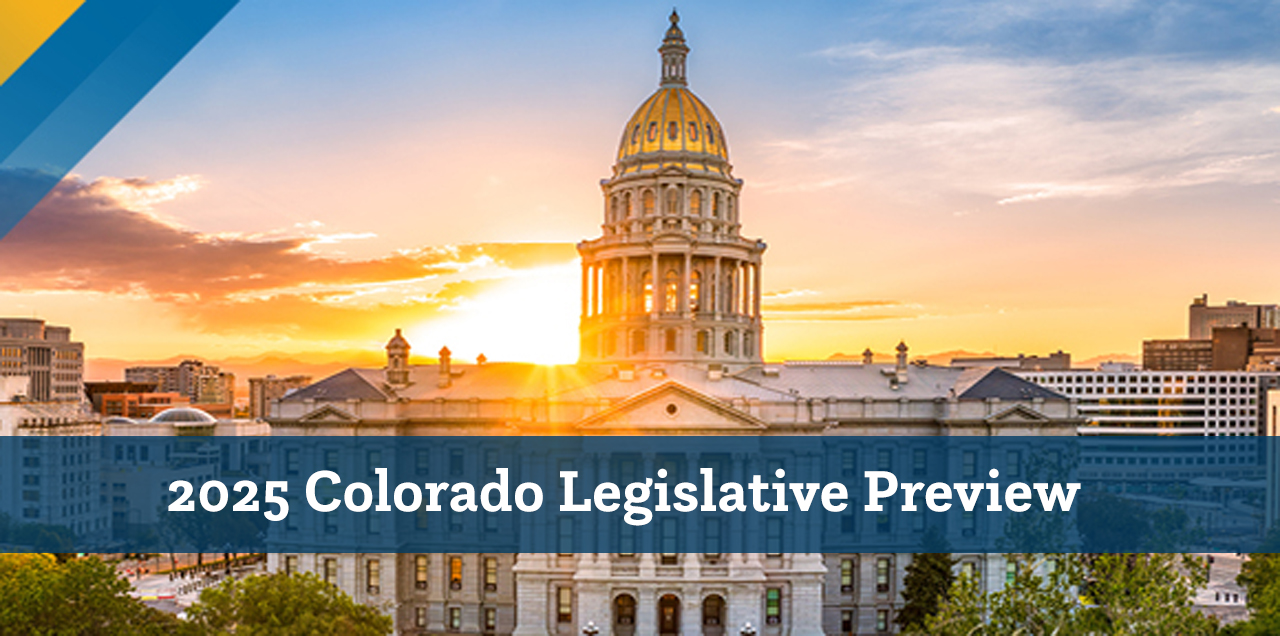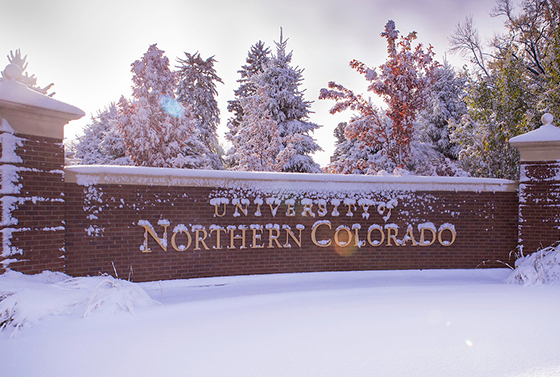
Colorado’s looming budget deficit, projected to be between $600 to $750 million for fiscal year 2025, was the prevailing theme during the 2025 Legislative Preview at the University of Northern Colorado (UNC) on Jan. 6.
Over 100 alumni, faculty, staff, community members and leaders attended the event, which provides attendees an opportunity to hear from legislators and lobbyists about key legislation and issues and to ask questions and share concerns. This is the sixth year the university has gathered a panel of state legislators and local leaders to provide a preview of the upcoming legislative session, which began Jan. 8.
Similar to previous years, the event featured a welcome from UNC President Andy Feinstein and remarks from northern Colorado’s legislators, including the newly elected Sen. Scott Bright, who replaced the term-limited Democratic Sen. Kevin Priola in Senate District 13, and Rep. Ryan Gonzalez, a 2018 UNC alumnus who defeated Democratic Rep. Mary Young in House District 50. Bright and Gonzalez were joined by industry and education lobbyists Sandra Hagen Solin, Anne Barkis, Dylan Peper and Kayla Tibbals.
While there was little information the panel could share yet about anticipated legislation, the state’s general fund shortfall, currently estimated as high as three-quarters of a billion dollars, was top of mind for everyone and is expected to bring a wide range of challenges to this year’s session.
Tibbals, UNC’s lobbyist, said that while the governor’s $46.1 billion budget sustains a commitment to public safety and K12 education, the reductions across other critical programs could potentially impact health care, education funding and economic support services. In particular, Tibbals pointed to the challenges for higher education in light of the governor’s proposed increase of $12.1 million for Colorado’s public colleges and universities, a substantial decrease from last fiscal year’s $132 million increase.
“Despite rising operational costs, the governor’s proposal this year requested an increase of $12.1 million for Colorado’s institutions of higher education and a tuition cap for in-state students at 2.3%, which is less than the rate of inflation,” said Tibbals. “The proposal also included an increase to financial aid of $2.3 million, but that's likely insufficient to fully address student needs as education costs continue to climb.”
As in previous years, Feinstein convened with other Colorado institutions of higher education to make a collective funding request to the Joint Budget Committee (JBC) that includes an increase of $80.2 million in state funding. In their letter to the JBC, the group expressed their understanding of the shortfall but emphasized that the increased funding to cover core minimum costs is critical to college affordability for Colorado residents.
“Colorado’s public system of higher education has been growing, with a total fall 2024 student enrollment at record levels,” said Tibbals. “The overwhelming majority of statewide enrollment growth is undergraduate resident students, who will directly benefit from state funding to keep tuition in check.”
The rate that Colorado funds higher education per capita remains at one of the lowest in the nation, ranking 48th of all states according to the most recent State Higher Education Finance report.
In addition to working to secure an adequate appropriation for higher education, Tibbals said the university will also prioritize efforts to enhance workforce development in education and health care.
“UNC will continue to work on the areas of teacher preparation with an acute focus on what we can do to support more students entering teacher preparation programs and addressing the state’s educator shortage,” said Tibbals. “We will also continue to work to find additional resources for our nursing program and emphasize the increased need and opportunity that exists in supporting nursing programs at our four-year institutions.”
Other key issues affecting higher education this session include the governor’s proposed changes to the College Opportunity Fund (COF), a program that pays a portion of the total in-state tuition for eligible undergraduate students. Under the governor’s new proposal, the number of credit hours a student is eligible to receive a stipend for will be reduced to align more closely with the goal of on-time degree completion.
Tibbals said she also expects the governor’s office to propose a change to state statute making the completion of the Federal Application for Federal Student Aid (FAFSA) and the Colorado Application for State Financial Aid (CASFA) a high school graduation requirement. She noted that just last year, Colorado students left over $55 million in federal aid unclaimed by not completing the FAFSA.
Other topics that were touched on by many panel members and attendees included concerns about the limited availability of affordable health care and housing options in northern Colorado.
The Legislative Preview was organized by UNC in partnership with Aims Community College, the Greeley Area Chamber of Commerce and Greeley-Evans School District 6. It is one of three community advocacy events co-hosted by UNC, alongside Greeley Day at the Capitol and the Legislative Wrap up. Feinstein created the event series to improve community relations and collaborative advocacy at the state capitol.
More Stories
-
State Funding For Higher Education Leads Discussion in Final Board Meeting of 2024
Este artículo no está en español.
-
Top Stories of 2024 Showcase Impact, Innovation and Inspiration
Las mejores noticias del 2024: impacto, innovación e inspiración
-
Business and Performing Arts Degrees Show Strong Growth Among Fall Class of 2024
Este artículo no está en español.
-
Faces of Fall 2024 Graduates
Este artículo no está en español.





